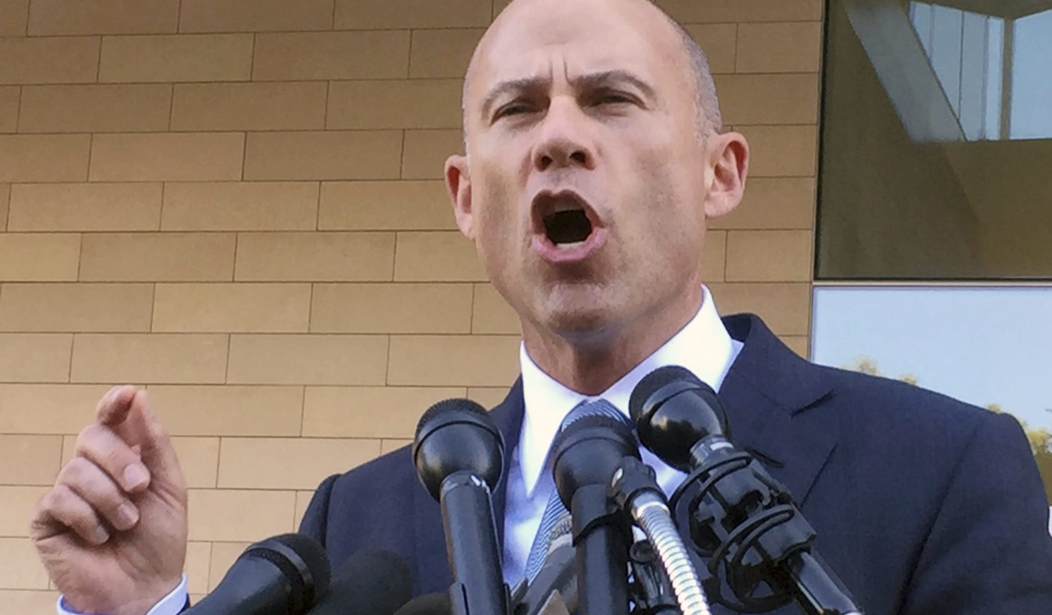Sen. Chuck Grassley (R-Iowa), chairman of the Senate Judiciary Committee, sent a letter urging the FBI to investigate the almost certainly false allegations of sexual assault leveled by Julie Swetnick and her attorney Michael Avenatti against the-Supreme Court nominee Brett Kavanaugh. This powerful letter revealed the contradictions in Swetnick’s public statements and the important history showing both Swetnick and Avenatti are the opposite of credible.
While Kavanaugh has been confirmed to the U.S. Supreme Court, making false statements to the Senate Judiciary Committee is a felony under federal law, and Grassley is right to go after Avenatti and Swetnick. In broader terms, false accusations of sexual assault can destroy men’s credibility and their lives. As Reason‘s Robby Soave so importantly reported, two malicious high school girls destroyed a young man’s life with false accusations.
In his letter to the Department of Justice and the FBI, Grassley recounted the story of Swetnick’s allegations. After Christine Blasey Ford came forth with her accusation (which had its own problems), Avenatti tweeted a teaser. When the Committee reached out to him, he sent a statement about gang rapes enabled by drugs and alcohol.
Avenatti only named his client — Julie Swetnick — on September 26, when he submitted her testimony to the Committee. Interestingly, Swetnick’s statement mentioned allegations of parties during “Beach Week” in Ocean City, Md. — following the release of Kavanaugh’s high school calendars, which showed a “Beach Week” in Ocean City. Avenatti’s original statement had made no mention of “Beach Week.”
The Democrats urged a full investigation, but even their letter admitted that Swetnick’s statement came “[u]nder penalty of perjury, which would cause Ms. Swetnick to be subject to criminal prosecution” if her allegations are knowingly, willfully, and materially false.
Due to these allegations, the Committee diverted important resources toward investigating Swetnick’s claims, but each of their efforts to confirm the gang rape accusations came up hollow. Kavanaugh denied ever having known Swetnick, Mark Judge denied ever knowing her, Michael Fegan — a friend of Kavanaugh’s in high school who attended most of the same social events — said he had “never heard of Ms. Swetnick.”
A letter signed by 64 men and women who knew Kavanaugh well in high school and submitted under penalty of felony declared, “we do not recall having ever met someone named Julie Swetnick.”
To make matters worse, Swetnick contradicted her own testimony.
On October 1, NBC News’ Kate Snow interviewed the accuser, and the accuser contradicted key claims she had made in her sworn statement. She had told the committee she knew Kavanaugh had spiked the punch at parties, but in the interview she said, “I don’t know what he did.” Avenatti later suggested that “one of her friends informed her of what she just put in the declaration or what was attested to in the declaration.” Ouch.
Incredibly, Swetnick explicitly contradicted her claims that she had seen boys “lined up outside rooms at many of these parties,” waiting to gang rape incapacitated women. In her interview, the accuser said she saw boys “standing outside of rooms, congregated together.” When Snow explicitly asked, “Standing in line outside a room?” She said, “Not a line.”
The accuser even went on to hedge about the main contention: that gang rapes were occurring. “I didn’t know what was occurring,” she told Snow. The NBC News anchor asked, “So you’re suggesting that, in hindsight, you think he was involved in this behavior?” To this, the accuser said, “I would say yes. It’s just too coincidental.”
In that same interview, the accuser contradicted the timeline she had provided in her sworn testimony. In the testimony, she mentioned parties during the years 1981-1983, but in the interview, she said she was sexually assaulted at one of the parties at age 19 and stopped attending them afterward. She would have turned 20 by the end of 1982.
Grassley quoted Snow at length, who later admitted being unable to find anyone who remembers attending parties with Swetnick and Kavanaugh. Snow publicly admitted the accuser had credibility issues.
While Swetnick did eventually provide four names of people she claimed attended these parties, NBC News reported that one of them did not recall a Julie Swetnick, another is deceased, and the other two did not respond to requests for comment.
Avenatti later provided a document he claimed would verify the accuser’s claims, but he never identified the author of the document.
Having addressed the weaknesses in the claims, Grassley turned to the broader credibility issues with both Swetnick and Avenatti.
The Committee interviewed ten associates of the accuser, and did not find any information to corroborate her claims. Richard Vinneccy, a former boyfriend of Swetnick, submitted sworn testimony claiming that the accuser “harassed and stalked” him after he broke up with her.
Indeed, when he told the accuser that his new girlfriend was pregnant, Swetnick threatened to murder him, his girlfriend, and their unborn child; threatened to falsely tell police he had raped her; threatened to have him deported; stated she would not grant him a divorce; and claimed she was pregnant with twins. All of these claims were extremely bizarre, since Vinneccy was never married to Swetnick, he is a U.S. citizen, and the accuser was not pregnant.
The former boyfriend also claimed that the Kavanaugh accuser was “always seeking financial gain from frivolous law suits.” Indeed, a former employer of Swetnick’s filed a defamation suit against her — claiming she engaged in a pattern of lies and made multiple false accusations of sexual assault.
A second former employer also reached out to the Committee with information that when the Kavanaugh accuser was confronted about sexual misconduct on her part, she responded with false sexual assault claims at that company as well.
Swetnick also made false claims in a personal injury lawsuit against the Washington Metropolitan Area Transit Authority (WMATA).
This history “lends credence to the likelihood that she made materially false statements to the Committee in violation of” federal law,” Grassley wrote.
Yet credibility issues did not stop with the accuser.
Michael Avenatti reportedly helped form the company Global Baristas with actor Patrick Dempsey in 2012, and used the company to purchase the Tully’s Coffee chain out of bankruptcy. Dempsey sued Avenatti in 2013, claiming the lawyer had lied to him about serious financial matters. He claimed Avenatti use the company to borrow $2 million without telling him.
In another lawsuit, a judge sanctioned his company for misconduct. Earlier this year, the State Bar of California investigated him for his work with Global Baristas in buying “a company out of bankruptcy and then [using] it for a ‘pump and dump’ scheme to deprive federal and state taxing authorities out of millions of dollars.”
In May 2016, a former partner of Avenatti’s firm Eagan Avenatti, resigned after alleging that the firm did not pay him the millions of dollars he was owed, misstated the firm’s profits, and wouldn’t provide copies of financial documents. A three-judge panel found that Eagan Avenatti “acted with malice, fraud, and oppression” and a judge awarded Frank $4.85 million from Avenatti, just this month.
Avenatti has also reportedly cheated the IRS, and hidden financial information from his second wife.
Given Swetnick’s contradictions, the lack of testimony corroborating her claims, and the credibility problems with both this accuser and her lawyer, Grassley asked “that the FBI investigate whether Mr. Avenatti criminally conspired with Ms. Swetnick to make materially false statements to the Committee and obstruct the Committee’s investigation.”
Grassley insisted that “the Committee is grateful to citizens who come forward with relevant information in good faith, even if they are not one hundred percent sure about what they know,” but he warned that “when individuals intentionally mislead the Committee, they divert Committee resources during time-sensitive investigations and materially impede our work.”
“Such acts are not only unfair; they are potentially illegal,” the senator declared. “When charlatans make false claims to the Committee — claims that may earn them short-term media exposure and financial gain, but which hinder the Committee’s ability to do its job — there should be consequences.”
Indeed. There should be consequences for false accusations, and this letter is an important vindication of the process to make sure that the #MeToo movement is not derailed merely for political gain. It is important that true victims of sexual assault come forward and that justice be carried out against abusers. At the same time, false accusations should not be tolerated.
Grassley sent that strong message on Thursday, and scam lawyers like Avenatti should listen.
Follow the author of this article on Twitter at @Tyler2ONeil.









Join the conversation as a VIP Member